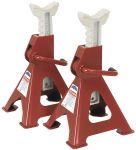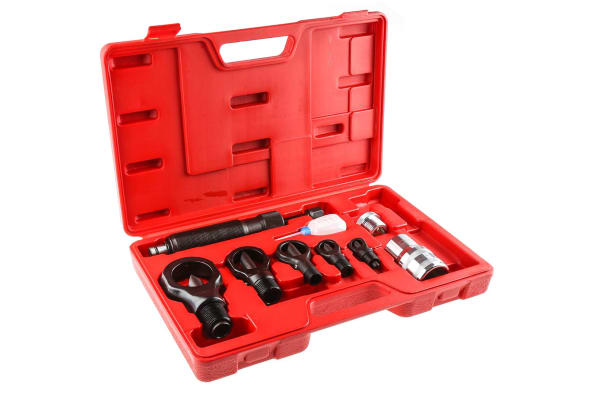Vehicle Test Kits
A bottle jack, also referred to as a piston jack, is a piece of automotive equipment that is used to lift vehicles off the ground. Bottle jacks can be used as a temporary support but they are primarily designed for lifting. The vehicle should be placed on supports (such as axle stands) whilst the maintenance or repair is being carried out.Bottle jacks are suited to heavy-duty applications and larger vehicles because their retracted height is typically around half the total height that they can lift. They are not suitable for low rise vehicles. Typical applications for bottle jacks include vehicles with a higher clearance such as SUVs, tractors and forklift trucks. For more information, please see our complete guide.Why choose a bottle jack?Bottle jacks have some advantages over trolley jacks. They are relatively light and more portable despite being able to lift the same weight or more. Bottle jacks take up less space than trolley jacks, giving you more space to work. They allow you to turn almost any environment into a garage or workshop.How do bottle jacks work?Bottle jacks typically utilise hydraulic technology. Pumping the handle pushes pressurised oil into the main cylinder of the jack and causes the piston to raise. The piston will keep rising while you pump the handle, allowing you to lift the vehicle.Which bottle jack should I choose?The choice of bottle jack depends on the weight that you want to lift. This is measured in tonnes and options normally range from 1 tonne (1000 kg) all the way through to 50 tonnes (50,000 kg).MaintenanceYou must store bottle jacks upright. In order to prevent the hydraulics from the effects of corrosion, you should always keep the main piston and extension screw lowered.Axle standsAxle stands are used to support a vehicle that has been raised off the ground. They support the axles of the vehicle and allow you safe access to work underneath the vehicle. Unlike jacks, axle stands are not designed to lift the vehicle, they only support it once lifted. Axle stands are typically construed from aluminium, steel, carbon steel, or cast iron. All of these materials are very strong and able to withstand a good deal of wear and tear. Axle stands are usually supplied in pairs to offer a balanced solution.





